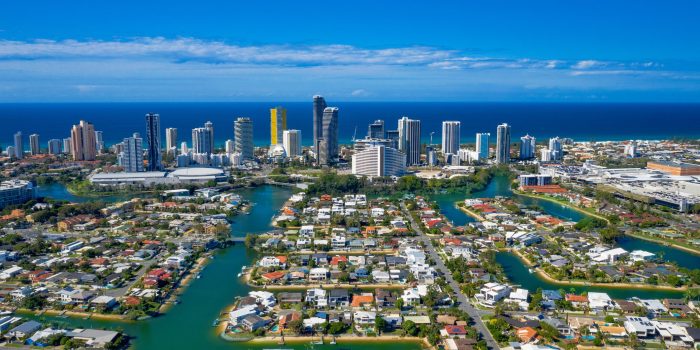The old adage about insurance only being good if you never have to claim was felt in a big way by a defence materiel company in whose care a Royal Australian Navy $50 million patrolboat was destroyed by fire at a Brisbane drydock in August 2014.
 The company – DMS Maritime P/L – did not shirk from its responsibility to the Commonwealth to indemnify it for the vessel’s loss.
The company – DMS Maritime P/L – did not shirk from its responsibility to the Commonwealth to indemnify it for the vessel’s loss.
On the other hand its insurer, Royal & Sun Alliance had to be hauled before Queensland’s Supreme Court to be compelled to pay DMS any part of what was due under the ship repairer’s policy.
The vessel – HMAS Bundaberg – was one of a fleet of 14 Armidale Class Patrol Boats built by DMS for the RAN between 2004 and 2007.
The shipbuilding contract had attached to it 15 year “support phase” obligations to keep the vessels serviceable according to defined operational and performance parameters.
Naturally enough, the transaction documents made DMS liable for “any loss or damage” suffered by a vessel while it was undergoing maintenance.
The Bundaberg was in the Hemmant drydock for the performance of routine to scheduled repairs when a welder employed by a DMS subcontractor sparked a fire which engulfed the aluminum hulled ship.
The subcontractor had taken inadequate precautions by not having posted a fire sentry on the opposite side of a bulkhead to detect and extinguish any ignition of combustible material as a result of “blow through” of hot metal from a welding operation. That error led to the destruction of the boat in very quick time.
Royal & Sun Alliance – one of several insurers, agreed to indemnify as to 100% up to $10 million and 50% of the next $40 million of any loss.
By the date of the fire, construction of Armidale Class vessels had long since ceased. It would have been cost prohibitive to replace the ship with a one-off build.
DMS thus went to great lengths to investigate how it could recompense Navy the loss with efforts to source vessels suitable for conversion. It approached among others, the New Zealand Navy, Clarkson’s ship brokers in London and Damen Shipyards in Holland.
About 12 months after the ship’s destruction, Navy settled on a Cape Class boat – the competitive new build base price of which was $31.5 million – as a suitable replacement for the Armidale Class.
DMS agreed – after completing a process to justify its reasonableness and assessing various “gives and takes” – to the Commonwealth’s offer to accept the cost price of a new Cape Class boat in full and final satisfaction for the Bundaberg’s loss. Navy’s previous demand had been for $51 million calculated by reference to the Bundaberg’s cost price, indexed for inflation.
Then came the argument with the insurer.
Its obligation to was to indemnify DMS “for all sums which [it] shall become liable to pay by reason of its legal liability as ship repairers……”.
It contended to the court that such indemnity only arose if the liability was established by a “judgement, arbitral award or reasonable compromise”.
The settlement between DMS and Navy– the insurer asserted – did not fit that description because it was a compromise of convenience that did not reflect “the actual amount DMS was in fact legally liable to pay to the Commonwealth”.
It demanded DMS prove to the court the precise dollar value of its liability to the Commonwealth – something that for an item that was half way through its service life, required modifications and whose value could not be determined for example by “recent sales”, was practically impossible.
Justice John Bond might have been persuaded by such argument had the insurer’s obligation to indemnify been limited to the “reasonable” sum its insured became liable to pay for the loss of the ship.
There being no such qualification as to the “reasonableness” of the amount at which DMS settled the commonwealth’s claim, he rejected the insurer’s argument. In his view, DMS established that the obligation to pay arose “by reason of” its legal liability to the Commonwealth and that was all DMS was required to establish.
The court noted that DMS had in any event adopted what appeared to be a very reasonable course of action.
Justice Bond ordered the insurer pay up to DMS $15.8 million – being its adjusted share of the $31.5 million loss – together with $2.03 million in interest.





